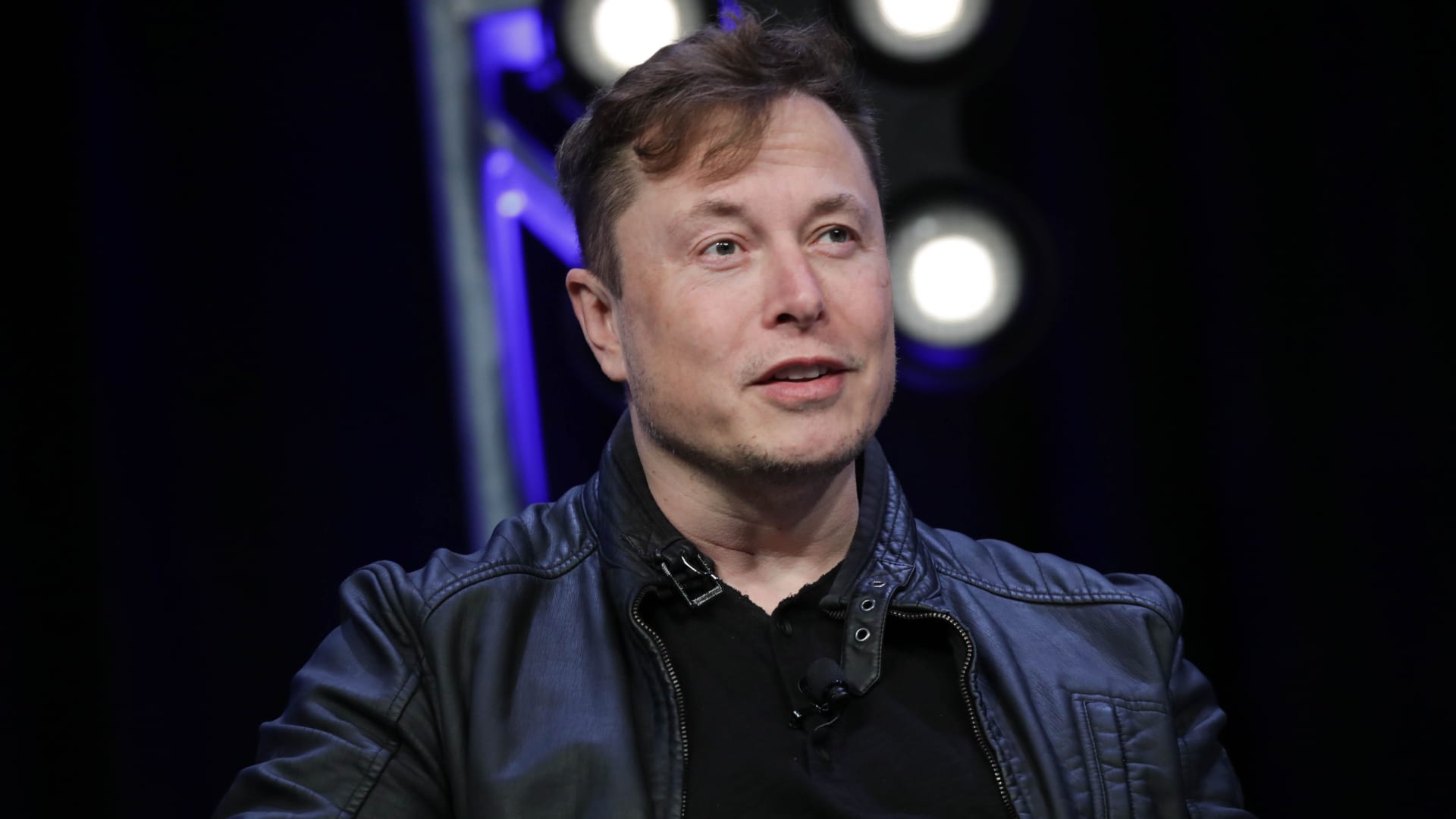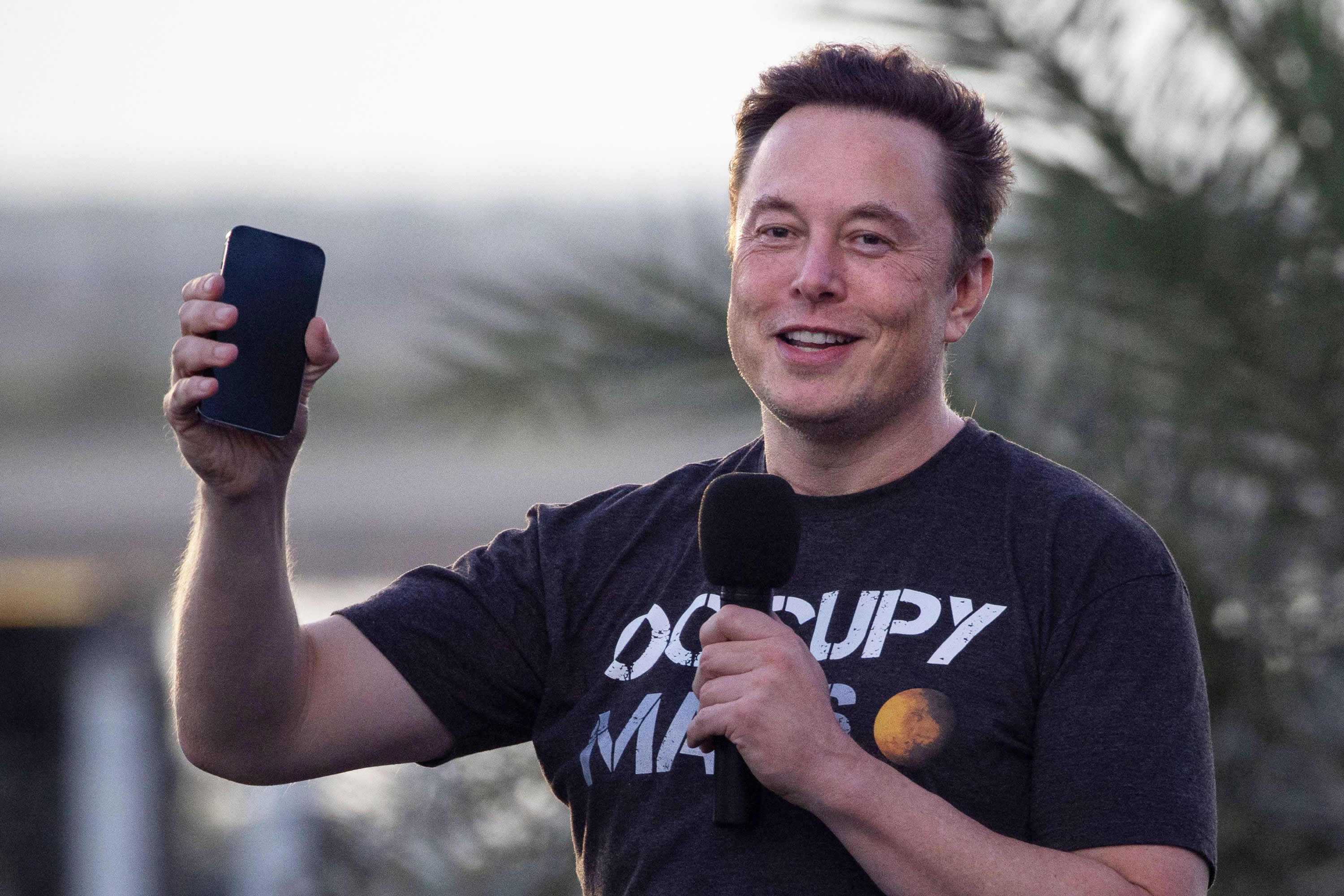Tesla and SpaceX CEO Elon Musk, who is also the new owner and CEO of Twitter, bashed Apple this week after claiming the company has threatened to remove the Twitter app from its App Store, accusing the company of hating “free speech.”
The Twitter app is still available for iOS devices, and there’s no sign that the popular social media app is at real risk of getting booted by Apple.
related investing news
The Tesla CEO’s furious tweets recall how Musk has long taken shots at Apple, and highlighted just how much power the tech juggernaut still has over the world’s richest person.
Meanwhile, Apple as a company never engages in public trash talk toward Musk or Tesla, and has even avoided taking veiled shots at them, as opposed to the frequent oblique criticisms aimed at Facebook.
Behind all the attacks, Musk has great admiration for Apple’s original founder, Steve Jobs. Musk has even begun working with Steve Jobs’ biographer, Walter Isaacson, on his own official biography.
A one-way war of words
Musk’s latest spate of Apple insults began last week. This week, Musk claimed in a tweet that Apple had mostly stopped advertising on the Twitter platform.
He tried to provoke Apple CEO Tim Cook into a public discussion about the reduction in advertising on Twitter, asking him if Apple hates “free speech in America” and “what’s going on here.” Cook did not respond.
Apple is not alone in reducing its campaigns on the social media platform since Musk took over.
After Musk closed a leveraged buyout deal on Oct. 28 and appointed himself CEO, a spike of anti-Black racist and antisemitic hate speech flooded the platform, partly because of raids that were coordinated by users on online chat platform 4chan.
Musk also began making steep cuts to Twitter’s workforce, gutting sales teams, teams responsible for measuring Twitter performance metrics and content moderation teams, among others.
Twitter has been losing advertisers and ad revenue ever since, with civil rights groups and previous advertisers on the platform pressuring Musk to prove that his much smaller team can responsibly manage content moderation, ad campaigns, cybersecurity and more.
Whether accurate or not, Musk’s allegation that Apple has “threatened to withhold” Twitter from its App Store may resonate with other developers.
Apple is notorious for providing few details when notifying app makers that their apps are at risk of suffering delayed updates or removal from the App Store. Responses inside Apple’s App Store Connect platform are terse, usually citing a rule, but not elaborating on what specifically an app maker should do to fix the problem — for example, Apple might say the app has a “metadata problem” or uses a banned application programming interface.
Musk also chafes under Apple’s platform fees, which are between 15% and 30% of total digital sales, like the $8 Twitter Blue subscription that Musk has said could be a major product for the company. Musk said it was a “de facto global tax” on the internet before he took over Twitter, but in his new role as an app owner, he has attacked it with increasing vigor.
This week, he tweeted and deleted a meme that suggested he would rather “go to war” than pay 30% to Apple.
Apple earlier this week declined to comment on the alleged threat of suspension or Apple’s ad spend with Twitter.
A long history of competition
Tesla and Apple are neighbors in the San Francisco Bay Area, which means that they have competed for talent for more than a decade. Now that competition has extended into Texas.
Both companies need mechanical engineers, industrial designers, materials science and battery experts, and skilled software engineers.
Apple has also invested heavily in developing its own electric autonomous vehicle technology. If the so-called “Apple Car” ever came to market, Tesla and Apple would be direct competitors.
In that context, early examples of Musk tweaking Apple could be seen as friendly rivalry.
When Tesla was still an underdog and upstart, Musk used to call Apple the “Tesla graveyard,” according to multiple former Tesla employees who spoke with CNBC. Internally, he would encourage unhappy Tesla workers to go apply for a cushy job at Apple.
He eventually brought this up in a public interview, saying that Apple hired people who were fired from Tesla.
In 2018, dozens of former Tesla employees landed at Apple, including some who were laid off and others who simply jumped ship from Tesla. At that time, the EV maker’s North American PR team told CNBC, “Tesla is the hard path. We have 100 times less money than Apple, so of course they can afford to pay more.”
One of the most notable people to switch sides was Doug Field, who started at Apple, joined Tesla and then rejoined Apple. Now he works for a more direct Tesla competitor, Ford.
Last summer, Musk laid out some of his problems with the way Apple does business on a Tesla earnings call, although he was careful not to name the company at first.
He started by criticizing the amount of cobalt, a mineral linked to human rights abuses, which Apple uses to make batteries in its devices. In 2018, Musk pledged to eliminate Tesla’s use of cobalt in its production entirely. Tesla has shifted a significant portion of its vehicles to a type of battery called an LFP, or lithium iron phosphate battery. However, it has not managed to eliminate need of cobalt completely yet.
In its most recent Impact Report, Tesla wrote, “we expect our absolute cobalt demand to increase over the coming years because our vehicle and cell production growth rate is forecasted to outpace the overall rate of cobalt reduction on a per cell basis.”
On the charging front, Tesla is experimenting with ways to give other EV drivers access to its network. But the company hasn’t opened up charging on a mainstream basis yet.
Later in the earnings call, Musk criticized Apple’s “walled garden” business model when answering a question about when Tesla chargers might be able to charge other vehicle makes.
“I think we do want to emphasize that our goal is to support the advent of sustainable energy,” Musk said. “It is not to create a walled garden and use that to bludgeon our competitors, which is used by some companies.”
In case anybody missed the reference to Apple’s App Store, which Apple maintains as the exclusive way to distribute apps to its devices, Musk then faked a cough and said, “Apple.”
Musk also has used Apple’s name to generate buzz. In September, when Apple announced satellite connectivity in its new iPhone 14 models (with satellites being operated by GlobalStar) Musk suggested that Apple had looked into using Starlink, which uses different technology.
“We’ve had some promising conversations with Apple about Starlink connectivity,” Musk tweeted, complimenting the iPhone team. Apple has never acknowledged any negotiations or even discussion with SpaceX.
Cook and Musk
Have Apple CEO Tim Cook and Musk ever spoken in depth?
According to Cook, the answer is no.
The Apple chief said in a 2021 podcast that he has “great admiration and respect” for Tesla, but that he had never spoken with Elon Musk. The two were photographed feet apart with other business leaders at a 2016 meeting with former President Donald Trump at Trump Tower.
But Musk claims that Apple declined his proposal to acquire Tesla years ago, when the EV maker’s market cap stood at a fraction of its current value.
“During the darkest days of the Model 3 program, I reached out to Tim Cook to discuss the possibility of Apple acquiring Tesla (for 1/10 of our current value). He refused to take the meeting,” Musk tweeted in 2020.
Another version of the story comes from “Power Play: Tesla, Elon Musk, and the Bet of the Century,” a book by business journalist Tim Higgins.
Around 2016, according to the book, Musk and Cook spoke about Apple potentially acquiring Tesla. It was struggling with high costs and issues shipping its Model 3 car at the time. Apple, with its expertise in manufacturing and large amounts of cash, would have been a perfect acquirer.
Except, in Higgins’ telling, Musk had one condition: He wanted to become CEO of the combined Apple-Tesla.
“F— you,” Cook said, according to the book.


